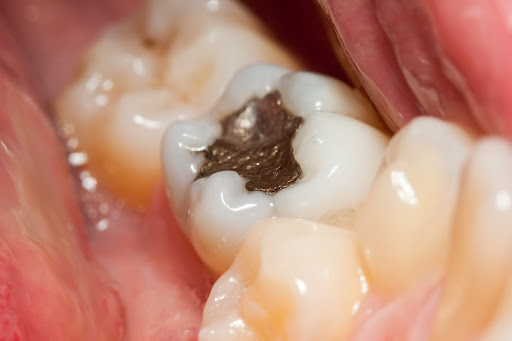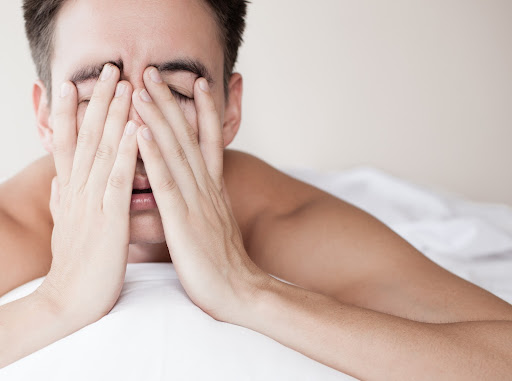
Face the Holidays with a New Smile
December 3, 2021
White Fillings vs. Silver Fillings: Which is better?
December 17, 2021In Greek, “apnea” means “without breath.” Obstructive sleep apnea (OSA) is defined by repeatedly stopping and starting breathing while you sleep. OSA is the most prevalent sleep-related breathing disorder and affects 37% of men and 50% of women. OSA can lead to increased tooth decay, TMJ disorder, cardiovascular disorders, and other physical conditions if left untreated. In this guide, we go over four sleep apnea red flags and explain why they happen.
- Dry Throat or Mouth in the Morning
Saliva is vital for keeping the mouth moist and clean. However, inadequate saliva production can lead to mild symptoms such as a hoarse voice or sore throat, but can also lead to more severe complications, such as:
- Gum disease
- Tooth loss
- Decreased sense of taste
One study published by the Journal of Sleep Research indicates that over 30% of patients with OSA experience dry mouth upon waking. Researchers hypothesized that this prevalence might be due to sleeping with the mouth open to force breathing.
- Lack of Energy During the Day
Many people consume caffeinated beverages to fight daytime tiredness. At the same time, others boost their energy levels by exercising, eating a more balanced diet, and losing weight. While the latter is better for the body at improving energy, there is no substitute for a good night’s sleep.
People who suffer from OSA lack quality sleep and may awake anywhere from 5 to more than 30 times per hour. Sleep disruptions at night are likely to decrease energy throughout the day and may cause people to feel sleepy during inappropriate times, including:
- Sleepiness while driving
- Mid-conversation
- During a meal
- Lower Dream Recall
Dreams are hallucinations during sleep and are the strongest during the REM (rapid eye movement) stage. Do you wake up without remembering what you just dreamt on most days? If you answered yes, then you may have obstructive sleep apnea. According to the Journal of Clinical Sleep Medicine, multiple studies suggest that OSA patients may report lower dream recall frequency. Furthermore, patients with higher AHI (apnea-hypopnea index) report a lower nightmare frequency, which indicates that patients with OSA suppress nightmare recall for most patients.
- Loud Snoring
Are you experiencing a simple snore or something more? Snoring occurs when the air can’t move freely through the nose and throat during sleep, making the surrounding tissues vibrate. This vibration causes the snoring sound and can be generally caused by:
- Age: With age, muscle tone decreases, and the throat becomes narrower (making inhalation more challenging, especially at night).
- Being out-of-shape: Poor muscle tone and carrying extra fatty tissue can contribute to snoring.
- Nasal and sinus issues: Stuffy noses and blocked airways make breathing more difficult and create a vacuum in the throat.
- Sleep on your back: Sleeping flat on the back causes
- Consuming alcohol, smoking, and certain medications:
Beyond these reasons, snoring can indicate obstructive sleep apnea (especially if you snore with the mouth open or in all sleeping positions). If you experience snoring and one other previously mentioned warning sign, it’s essential to speak with a medical professional to rule out sleep apnea.
Treat Sleep Apnea in Grant Park
If you suspect that you may have sleep apnea, the first step to treating mild to moderate obstructive sleep apnea is visiting the dentist. After investigating changes in your teeth (such as excessive grinding), Dr. Lee recommends a customized oral appliance for mild to moderate cases of sleep apnea in Grant Park. If further treatment is needed, Dr. Lee can suggest a sleep specialist in your area for more intensive OSA treatment.
Learn more about gentle sleep apnea treatment right now by calling 404-328-7177 or contacting us online.


